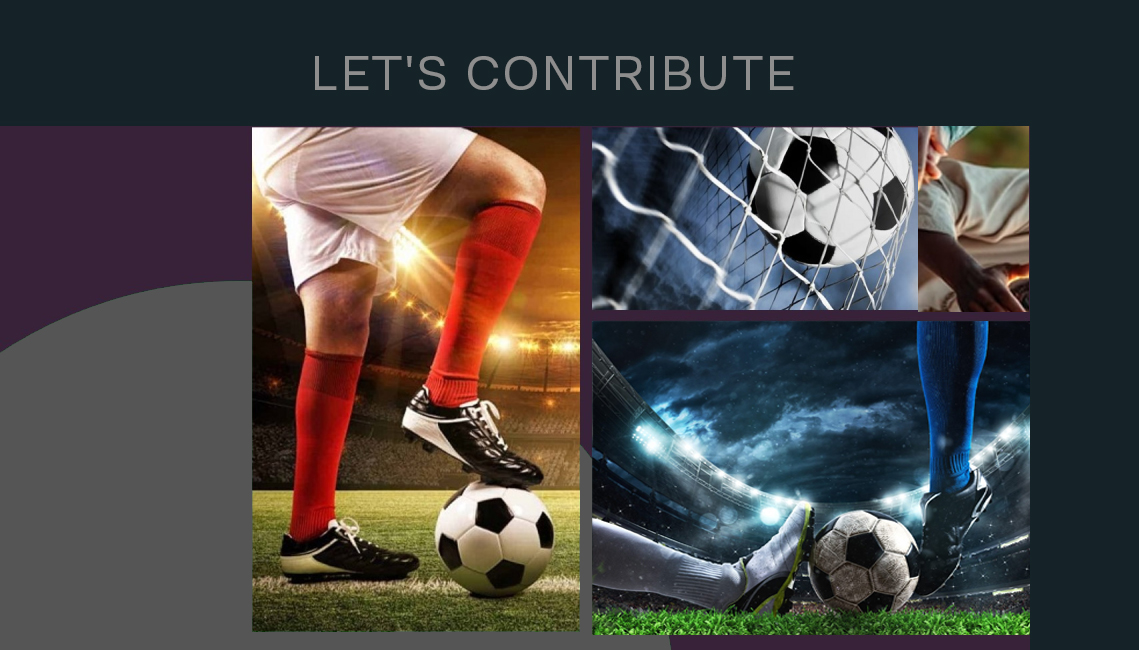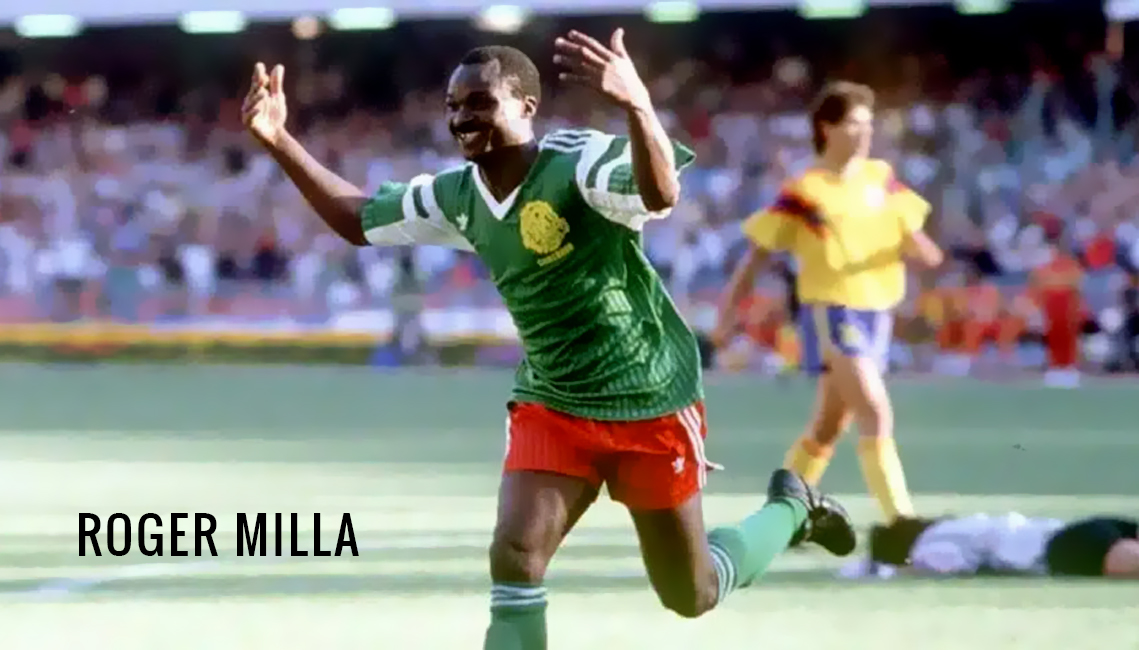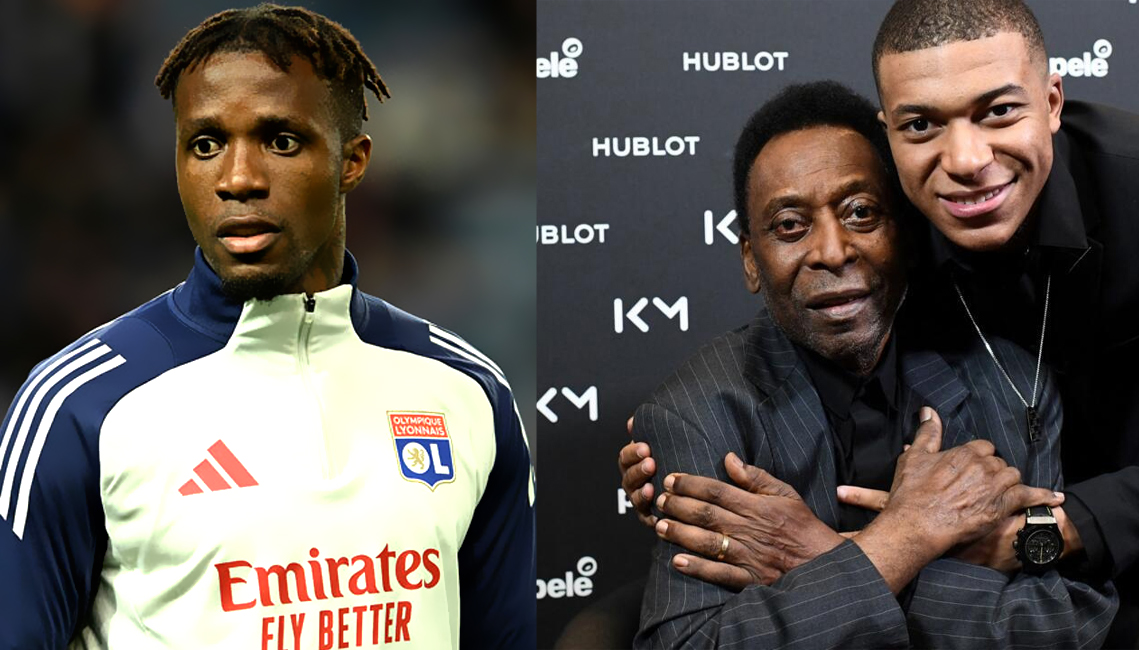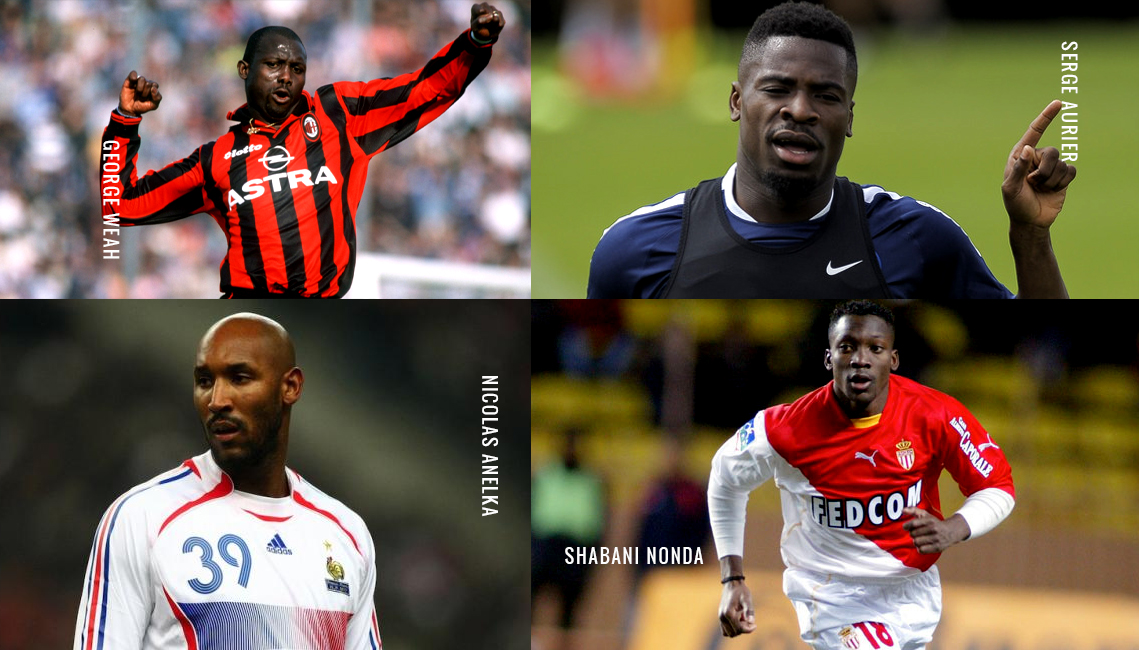Articles

LET'S CONTRIBUTE TO JUSTICE FOR AFRICAN IN WORLD FOOTBALL INDUSTRY BY 2030 FOR BETTER HUMANITY
The Lack of Respect and Public Outrage Towards African Football Players in European Leagues:
A Comprehensive Analysis by His Excellency Hajj Dr. Alhussein O.E. Banao - Executive President of AGIC Global Foundation -
African football players have long been a vital part of European football, bringing immense talent, passion, and diversity to the game. However, their journey has been marred by systemic disrespect, racial discrimination, and public outrage, both from club management and fans. This document provides an in-depth exploration of the challenges faced by African players, the role of fans in perpetuating or combating these issues, and the broader implications for the football industry.
1. Historical Context of African Players in European Football
African players began migrating to European leagues in the mid-20th century, seeking opportunities to showcase their talent and improve their livelihoods. Pioneers like Salif Keita Domingo (Mali), George Weah (Liberia), Abedi Pele (Ghana), and Roger Milla (Cameroon) paved the way for future generations. Despite their contributions, African players have consistently faced systemic challenges, including racial prejudice, cultural insensitivity, and unequal treatment compared to their European counterparts.
2. Manifestations of Disrespect Towards African Players
a. Racial Discrimination and Stereotyping
African players are often subjected to racial slurs and stereotypes, both on and off the pitch. Coaches, management, and fans have been known to make derogatory remarks about their race, intelligence, or cultural background. For example:
- Romelu Lukaku (Belgian of Congolese descent) was called a "monkey" by fans during a match in Italy in 2019. - African players are frequently stereotyped as "physically strong but tactically naive," undermining their technical and intellectual contributions.
b. Unequal Pay and Contract Disputes
African players often earn less than their European teammates, despite similar or superior performances. Clubs sometimes exploit African players by offering unfair contracts or delaying payments. For instance:
- Many African players in lower-tier European leagues have reported not being paid for months, with clubs using their lack of legal knowledge or resources to avoid fulfilling contractual obligations.
c. Lack of Support for Cultural and Religious Practices
African players frequently face challenges in practicing their cultural or religious beliefs.

For example:
- Muslim players from Africa have reported difficulties in observing Ramadan or finding halal food in some European clubs.
- Clubs often pressure African players to prioritize club commitments over international tournaments like the Africa Cup of Nations (AFCON).
d. Media Bias and Negative Portrayal
The media often perpetuates negative stereotypes about African players. For example:
- African players are more likely to be criticized for mistakes on the pitch compared to their European counterparts.
- Their off-field behavior is often scrutinized more harshly, with any misstep being exaggerated or sensationalized.
e. Exploitation of Young African Talent
European clubs frequently recruit young African players through unscrupulous agents, promising fame and fortune. However, many of these players end up abandoned in foreign countries without contracts or support. This practice, often referred to as "football trafficking," highlights the lack of respect for African players' well-being and futures.
3. Public Outrage and Backlash
The mistreatment of African players has led to widespread public outrage, both in Africa and globally. This outrage manifests in several ways:
a. Social Media Campaigns
Social media has become a powerful tool for calling out instances of racism and disrespect. Hashtags like #BlackLivesMatter and #SayNoToRacism have been used to highlight the mistreatment of African players. For example:
- In 2020, Wilfried Zaha (Ivory Coast) called out a racist message he received on social media, sparking a wave of support from fans and fellow players.
b. Protests by Fans and Advocacy Groups
- In 2020, Wilfried Zaha (Ivory Coast) called out a racist message he received on social media, sparking a wave of support from fans and fellow players.

Fans and advocacy groups have organized protests and campaigns to demand better treatment for African players. For example:
- The "Kick It Out" campaign in the UK has been instrumental in raising awareness about racism in football and advocating for change.
c. Legal Action
Some African players have taken legal action against clubs or individuals for racial discrimination or contract violations. For example:
- In 2018, former Cameroon international Samuel Eto'o sued his former club, Antalyaspor, for unpaid wages.
d. Boycotts and Strikes
In some cases, African players have boycotted matches or gone on strike to protest unfair treatment.
For example:
- In 2022, several African players in the Turkish league refused to play after their clubs failed to pay their salaries.
4. The Role of Club Fans
The attitude and behavior of club fans play a significant role in shaping the experiences of African football players in European leagues. While many fans are supportive and inclusive, there is a regrettable segment of fan behavior that perpetuates racism, discrimination, and disrespect towards African players.
a. Negative Fan Behavior
- Racial Abuse and Chants:
African players are often subjected to monkey chants, racial slurs, and even banana throwing. For example, in 2019, Inter Milan striker Romelu Lukaku was targeted with monkey chants by Cagliari fans.
- Booing and Hostile Atmosphere:
African players are often booed or subjected to hostile atmospheres, especially when they play against their former clubs or in high-stakes matches.
- Social Media Harassment:
Fans often hide behind anonymity to spew hateful comments, including death threats and racial slurs.- Lack of Support During Controversies:
When African players face mistreatment from their clubs or coaches, fans often fail to rally behind them, instead siding with the club management.b. Positive Fan Behavior and Solidarity
- Anti-Racism Campaigns:
Fans have participated in anti-acism campaigns organized by clubs, leagues, and players.
For example, the #NoToRacism campaign by UEFA has seen fans hold banners and wear T-shirts supporting the cause.
- Defending Players Against Abuse:
Some fans have taken it upon themselves to defend African players against racist abuse. For example, in 2019, fans of Borussia Dortmund defended their player, Achraf Hakimi (Morocco), after he was subjected to racist chants during a match.
- Celebrating African Players:
Many fans celebrate the contributions of African players to their clubs. Players like Mohamed Salah (Liverpool), Riyad Mahrez (Manchester City), and Sadio Mané (Bayern Munich) have become fan favorites due to their talent and dedication.
5. Consequences of Disrespect and Mistreatment
a. Mental Health Issues
The constant discrimination and lack of respect can take a toll on African players' mental health. Many players have spoken about experiencing depression, anxiety, and feelings of isolation.
b. Loss of Talent
The mistreatment of African players discourages young talent from pursuing careers in European leagues. This not only harms the players but also deprives the football world of exceptional talent.

c. Damage to Club Reputations
Clubs that mistreat African players often face backlash from fans, sponsors, and the media. This can lead to a loss of revenue and damage to their reputation.
d. Strained Relations Between Africa and European Football
The mistreatment of African players has strained relations between African football associations and European clubs. For example, disputes over player releases for AFCON have led to tensions between clubs and national teams.
6. Steps Towards Change
a. Anti-Racism Campaigns
Organizations like FIFA, UEFA, and CAF have launched anti-racism campaigns to combat discrimination in football.
b. Stricter Regulations
Football governing bodies have introduced stricter regulations to protect players' rights, including penalties for racial abuse and measures to ensure fair contracts.
c. Education and Awareness
Clubs and organizations are increasingly focusing on education and awareness programs to promote diversity and inclusion.
d. Support from Fellow Players
Many non-African players have shown solidarity with their African teammates, using their platforms to speak out against racism and discrimination.
e. Encouraging Positive Fan Behavior
Clubs can encourage positive fan behavior by celebrating diversity and recognizing the contributions of African players
.7. Conclusion
The lack of respect and public outrage towards African football players in European leagues is a deeply rooted issue that requires systemic change. While progress has been made, much work remains to be done to ensure that African players are treated with the dignity and respect they deserve. By addressing racial discrimination, economic exploitation, and cultural insensitivity, the football community can create a more inclusive and equitable environment for all players, regardless of their background. The role of fans is crucial in this process, as their attitudes and behaviors can either perpetuate or challenge the status quo. Together, clubs, players, fans, and governing bodies must work towards a future where African players are celebrated for their contributions and treated as equals in the world of football............................PART ONE
